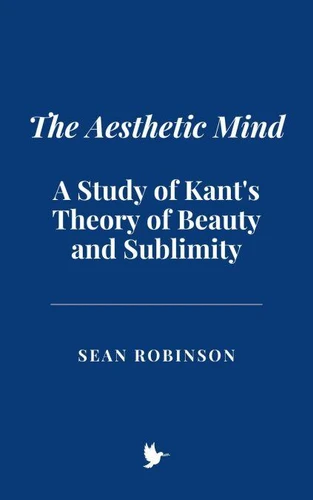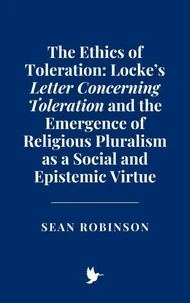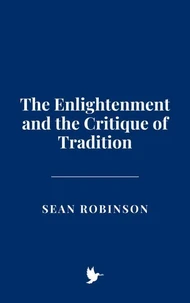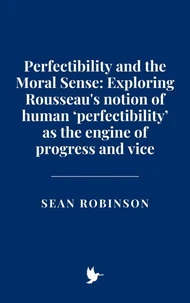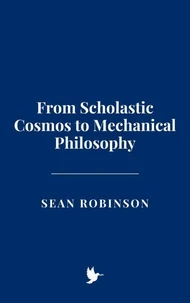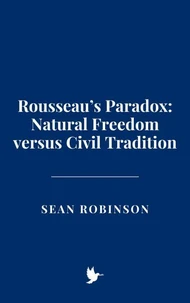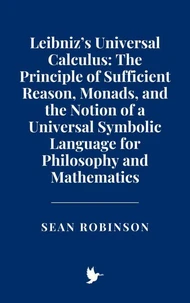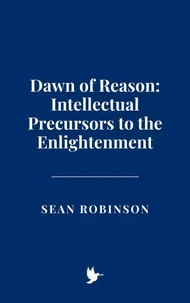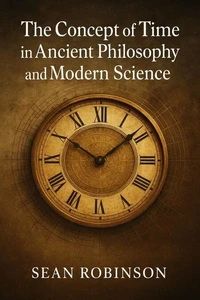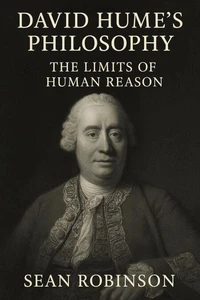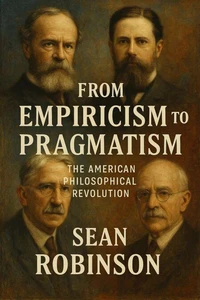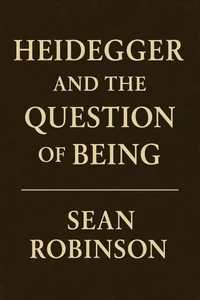The Aesthetic Mind: A Study of Kant's Theory of Beauty and Sublimity
Par :Formats :
Disponible dans votre compte client Decitre ou Furet du Nord dès validation de votre commande. Le format ePub est :
- Compatible avec une lecture sur My Vivlio (smartphone, tablette, ordinateur)
- Compatible avec une lecture sur liseuses Vivlio
- Pour les liseuses autres que Vivlio, vous devez utiliser le logiciel Adobe Digital Edition. Non compatible avec la lecture sur les liseuses Kindle, Remarkable et Sony
 , qui est-ce ?
, qui est-ce ?Notre partenaire de plateforme de lecture numérique où vous retrouverez l'ensemble de vos ebooks gratuitement
Pour en savoir plus sur nos ebooks, consultez notre aide en ligne ici
- FormatePub
- ISBN8230648659
- EAN9798230648659
- Date de parution16/11/2024
- Protection num.pas de protection
- Infos supplémentairesepub
- ÉditeurIndependently Published
Résumé
This comprehensive exploration of Immanuel Kant's aesthetic philosophy delves into the intricate framework of his Critique of Judgment, examining its profound implications for art, beauty, the sublime, and the nature of aesthetic judgment. Kant's aesthetics, characterized by key concepts such as disinterested pleasure, purposiveness without purpose, and the free play of imagination and understanding, bridges the domains of nature and freedom, sensibility and reason, offering a unified vision of human cognition and creativity.
Through a comprehensive engagement with Kant's primary texts and their critical reception, this work highlights the transformative power of aesthetic experience as a bridge between nature and freedom, sensibility and reason. The book explores how Kant's ideas inform debates in contemporary aesthetics, including the digital and environmental sublime, the ethics of representation, and the challenges of cultural pluralism.
It also addresses critiques of Kantian universality, emphasizing the importance of reinterpreting his framework in light of diverse cultural and historical contexts. By integrating Kant's philosophy with modern developments in art theory, cognitive science, and environmental ethics, this study demonstrates the relevance of his ideas for understanding the evolving relationship between beauty, creativity, and human flourishing.
Kant's aesthetics is not merely a historical achievement but a living tradition, continually inspiring new ways of thinking about art, culture, and the shared human pursuit of meaning and connection.
Through a comprehensive engagement with Kant's primary texts and their critical reception, this work highlights the transformative power of aesthetic experience as a bridge between nature and freedom, sensibility and reason. The book explores how Kant's ideas inform debates in contemporary aesthetics, including the digital and environmental sublime, the ethics of representation, and the challenges of cultural pluralism.
It also addresses critiques of Kantian universality, emphasizing the importance of reinterpreting his framework in light of diverse cultural and historical contexts. By integrating Kant's philosophy with modern developments in art theory, cognitive science, and environmental ethics, this study demonstrates the relevance of his ideas for understanding the evolving relationship between beauty, creativity, and human flourishing.
Kant's aesthetics is not merely a historical achievement but a living tradition, continually inspiring new ways of thinking about art, culture, and the shared human pursuit of meaning and connection.
This comprehensive exploration of Immanuel Kant's aesthetic philosophy delves into the intricate framework of his Critique of Judgment, examining its profound implications for art, beauty, the sublime, and the nature of aesthetic judgment. Kant's aesthetics, characterized by key concepts such as disinterested pleasure, purposiveness without purpose, and the free play of imagination and understanding, bridges the domains of nature and freedom, sensibility and reason, offering a unified vision of human cognition and creativity.
Through a comprehensive engagement with Kant's primary texts and their critical reception, this work highlights the transformative power of aesthetic experience as a bridge between nature and freedom, sensibility and reason. The book explores how Kant's ideas inform debates in contemporary aesthetics, including the digital and environmental sublime, the ethics of representation, and the challenges of cultural pluralism.
It also addresses critiques of Kantian universality, emphasizing the importance of reinterpreting his framework in light of diverse cultural and historical contexts. By integrating Kant's philosophy with modern developments in art theory, cognitive science, and environmental ethics, this study demonstrates the relevance of his ideas for understanding the evolving relationship between beauty, creativity, and human flourishing.
Kant's aesthetics is not merely a historical achievement but a living tradition, continually inspiring new ways of thinking about art, culture, and the shared human pursuit of meaning and connection.
Through a comprehensive engagement with Kant's primary texts and their critical reception, this work highlights the transformative power of aesthetic experience as a bridge between nature and freedom, sensibility and reason. The book explores how Kant's ideas inform debates in contemporary aesthetics, including the digital and environmental sublime, the ethics of representation, and the challenges of cultural pluralism.
It also addresses critiques of Kantian universality, emphasizing the importance of reinterpreting his framework in light of diverse cultural and historical contexts. By integrating Kant's philosophy with modern developments in art theory, cognitive science, and environmental ethics, this study demonstrates the relevance of his ideas for understanding the evolving relationship between beauty, creativity, and human flourishing.
Kant's aesthetics is not merely a historical achievement but a living tradition, continually inspiring new ways of thinking about art, culture, and the shared human pursuit of meaning and connection.

